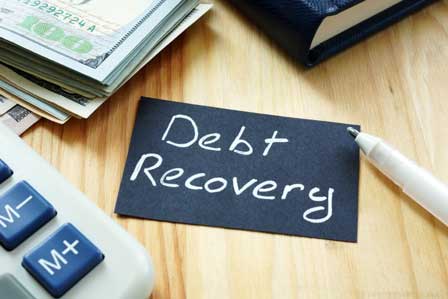Debt Recovery Laws in UAE – Dubai Debt recovery is an essential aspect of financial transactions, and it is crucial for individuals and businesses to understand the laws and regulations that govern this process. In the UAE, debt recovery is regulated by various laws and regulations, which outline the legal framework that governs the recovery process.
The UAE has a well-established legal system ensures that debtors and creditors are protected. debt recovery laws in Dubai are designed to provide a fair and efficient system for the recovery of unpaid debts, ensuring that both parties have a clear understanding of their rights and obligations.
Our top debt collection lawyer in Dubai will highlight certain important considerations for understanding the Debt Recovery Laws in the UAE legal framework.
Dive Deeper About: Medical Malpractice In accordance with the provisions of Federal Decree Law No. (4) of 2016

Legal Framework of Debt Recovery Laws in UAE | Dubai debt laws
The UAE has a strict legal system that governs debt collection. The legal framework is based on Sharia law, which is the Islamic legal system. Sharia law places a high value on the repayment of debts and provides a number of mechanisms for the collection of outstanding debts.
One of the key legal mechanisms for debt collection UAE is the Commercial Transactions Law. This law provides a number of remedies for creditors who are seeking to recover outstanding debts, including the ability to file a lawsuit in court. In addition to the Commercial Transactions Law, there are a number of other laws that govern debt recovery in UAE, including:
- UAE Civil Transactions Law: The Civil Transactions Law provides the legal framework for debt collection in the UAE. It outlines the rights and obligations of creditors and debtors and provides legal remedies for debt collection.
- UAE Penal Code: The Penal Code provides criminal penalties for debtors who fail to pay their debts or provide false information to creditors.
- UAE Commercial Transactions Law: The Commercial Transactions Law governs the collection of commercial debts and provides additional legal remedies for debt collection.
- UAE Central Bank regulations: The Central Bank of the UAE has issued several regulations and guidelines related to debt collection practices. These include regulations on debt collection agencies, fair debt collection practices, and the use of credit reporting agencies.
- UAE Ministry of Economy regulations: The Ministry of Economy has also issued regulations related to debt collection practices, including guidelines on the use of electronic payment systems and the resolution of disputes between creditors and debtors.
Know more about Debt Collection Services in UAE
Cultural Considerations of debt recovery Dubai | uae debt collection laws
In addition to the legal framework, cultural considerations are also an important factor in the debt collection process in UAE. The culture in the UAE places a high value on personal relationships, particularly in business dealings. This means that creditors must be careful not to damage their relationships with debtors, even as they seek to recover outstanding debts.
One way to maintain relationships while still collecting debts is to use a third-party debt collection agency. These agencies are often able to collect debts in a more diplomatic manner than a creditor would be able to on their own. This is because debt collection agencies are experienced in negotiating with debtors and can often find a mutually beneficial solution that preserves the business relationship.
Tips for Resolving Debt Issues in the UAE From Khairallah Advocates
If you are a borrower struggling to make loan payments in the UAE, there are several steps you can take to resolve your debt issues:
- Communicate with your lender – If you are having trouble making loan payments (unpaid debt in UAE), it is important to communicate with your lender as soon as possible. They may be able to offer you a repayment plan or other solutions to help you manage your debt.
- Seek legal advice – If you are unsure of your legal rights and responsibilities, it may be helpful to seek legal advice from a qualified attorney or (debt recovery service Dubai).
- Avoid ignoring the issue – Ignoring debt collection letters and calls will only make the situation worse. It is important to take action and communicate with your lender to resolve the issue as quickly as possible.
- Understand your financial situation – It is important to have a clear understanding of your financial situation and your ability to repay the debt. This will help you work out a repayment plan that is realistic and manageable.
Read More About: How to Become a Foreign Company’s Exclusive Distributor in the UAE
FAQ about Debt Recovery Laws In UAE

1- What is debt recovery?
debt collection in Dubai is the process of collecting unpaid debts from individuals or businesses. It involves various legal procedures and steps aimed at recovering outstanding debts.
2- can debt collectors call you at work in UAE?
Debt collectors in UAE don’t have the right to approach you face-to-face at your residence or place of work. Therefore, you shouldn’t be approached about the payments if you haven’t agreed to accept any liability for the loan.
3- How long does the debt recovery process take in the UAE?
The length of the debt recovery process in the UAE depends on several factors, including the complexity of the case, the cooperation of the parties involved, and the legal procedures and steps required. It is best to seek legal advice for a more accurate estimate of the time required for debt recovery.
4- Can debt collection agencies operate in the UAE?
Yes, debt collection agencies in Dubai can operate in the UAE. Still, they must be registered with the UAE Central Bank and follow the guidelines and regulations set by the UAE government.
5- how to deal with debt collectors in uae?
When dealing with debt collectors in the UAE, it’s important to remain calm and informed. Verify the debt’s validity, negotiate payment terms, and request documentation. Understand your rights under UAE law and communicate in writing. Seek legal advice if needed, and consider debt restructuring or settlement options.
Read More About: The Company’s Liquidation and Asset Division in the UAE
In conclusion
The UAE has a well-established legal system that ensures the fair and efficient recovery of unpaid debts. Debt recovery laws in UAE are designed to protect the rights of both the debtor and the creditor, and understanding these laws is essential for individuals and businesses engaged in financial transactions.
Seeking the advice of the best debt collection lawyers in UAE by Khairallah law firm can help ensure a smooth and efficient debt recovery process.




My husband is telling the courts I’m liable for debt that he made in the UAE. We are divorced. I live in South Africa and he works In the uae. How can I prove he is liable for that loan? Shukrun for your assistance.